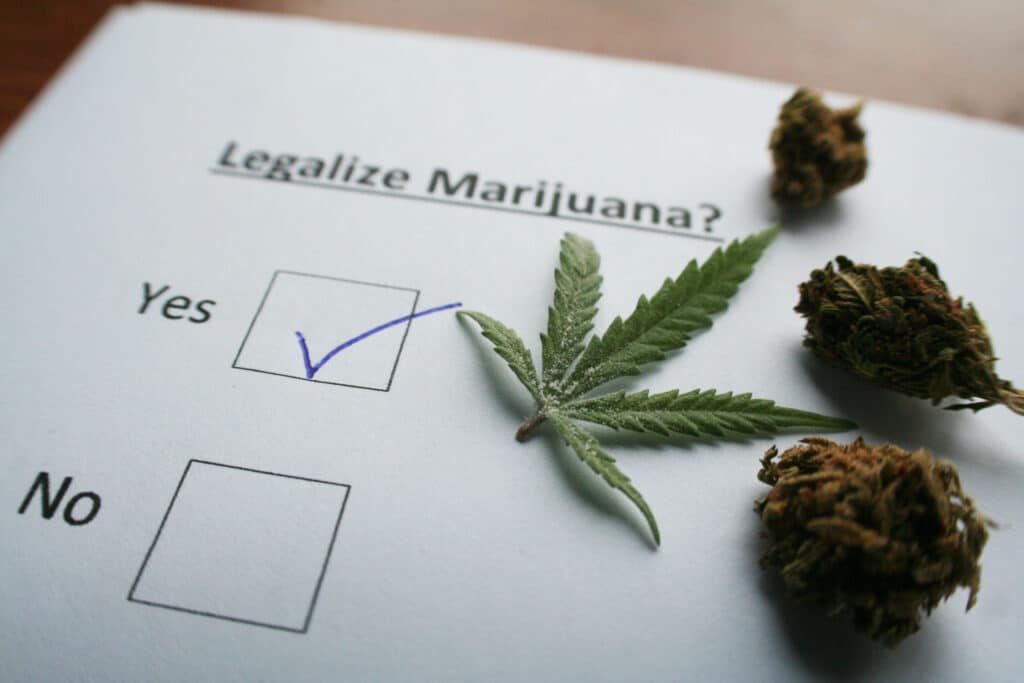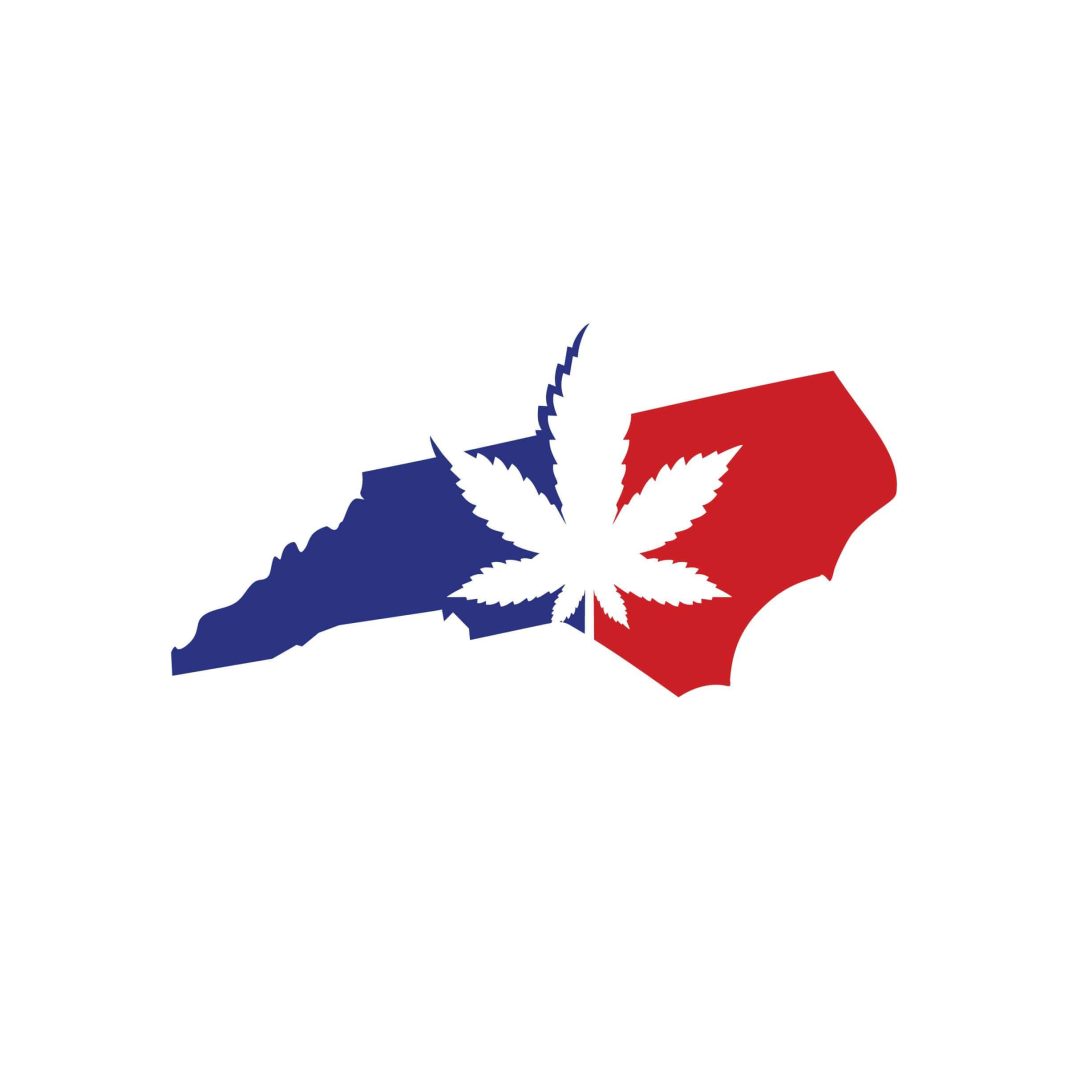A North Carolina Indian tribe just voted in recreational cannabis; as the state languishes behind, unable to pass a medical bill.
How North Carolina is losing to Indian tribe over cannabis
There are two stories here. The first, is that the North Carolina Eastern Band of Cherokee Indians (EBCI) just passed a recreational cannabis referendum on September 7th, according to Marijuana Moment. The Indian tribe became the first place in North Carolina to pass a recreational cannabis bill. The EBCI says the referendum passed with 70% of the voting population in support of it. The ballot was for a sales market that would be accessible by anyone 21 and above; whether tribal, or American.
Incidentally, it seems the vote did not lead directly to a legalization; as the referendum did not officially legalize the plant. Tribal leaders said they would follow through with what needs to be done when they actually take up the issue of legalization; and that the tribe intends to follow the lead of voters. There was no further information given, as to when this is expected to happen.
The second story is in regards to the tribe’s medical program. In October, the tribe went a step further with its already-approved medical program; which was originally passed by the Tribal Council in September of 2021. On October 12th, the tribe began issuing medical marijuana cards. No sales have been made yet, but the tribe is working on a 57,000-acre dispensary; which is the only place weed can be legally bought in the state. With the issuance of these new cards, it seems medical sales are on the way.
According to EBCI’s Cannabis Control Board Executive Director, Neil Denman, 1,005 applicants sent in registration paperwork to obtain cards. As of the writing of the Marijuana Moment article, the tribe had approved 817 of these, and 129 were incomplete, and required more information. The tribe did reject 59 applications for the applicant not having a relevant condition for treatment.
The cards supposedly come with buying limits per day and week; for which violations can result in suspension or revocation. They are only for tribal members at the moment, but will be available to residents of the state in the future.
What’s the hold up?
The tribe has been trying to get medical sales started for two years; but it faces a particular issue, which created multiple delays. It has to do with the transport of the weed from the place of production, to the place of sale. The tribe’s procedure involves driving the product through Swain County, North Carolina, on state roads; which is problematic since cannabis is illegal in the state. One former chief apparently blamed this problem on poor planning by non-native vendors; but it seems odd that the tribe didn’t simply alter its plan within this time.
Denman recently announced to the commission, that the tribe is working out a deal with Swain County, in order to make these transports. But he didn’t give an indication of how long it would take. The commission asked the obvious question, of why not start a different construction site. But the answer from the tribe’s Cannabis Control Board Inspector Brian Parker, was that the first site was still being worked on.
So it seems the tribe, for whatever reason, set up a plan whereby the weed is grown and sold in different places, with state highway in between. It’s questionable how this setup began in the first place. According to Mike Parker, the chairman for EBCI’s Tribal Council, this problem is now creating monetary problems for Qualla Enterprises, the tribal cannabis company behind this. It was reported by the Observer, via Marijuana Moment, that the Council might lend $19 million to the company, to help with expenses related to the hold up.
According to Parker, “We haven’t been able to transport the product to the dispensary, is my understanding. We have no revenue, because we haven’t been able to transport the product.” The plan is obviously faulty in its reliance on state owned highway. Particularly because we’re talking about North Carolina.

North Carolina and cannabis
North Carolina has some pretty stringent cannabis laws; and is one of the strictest states in the country. The state is illegal for recreational use, and only allows very limited medical use, which amounts to the use of CBD for intractable epilepsy. The law for this, HB 766 passed in 2015; but never set up a regulatory structure for actual purchases. Meaning there is no industry at all.
What North Carolina does have, subsequent to a period of decriminalization that swept over the US in the 70’s, is a decriminalization policy. Under this law, up to ½ ounce is subject to a $200 fine only; and amounts to a Class 3 misdemeanor. Up to 1.5 ounces is a Class 1 misdemeanor. Anything over this amount is a Class I felony.
The legislature of the state has tried more than once to institute a full medical policy, but to no avail. The first from 2014, died in the House of Representatives – or rather, was killed. This killing led to a ‘unfavorable report’ which made it so no new bills with medical clauses could be introduced in the following two years. Another attempt was made in 2021. This bill, SB 711, passed the Senate in 2022, but could not pass the House.
The current attempt, SB 3 (NC Compassionate Care Act), passed the Senate as well, earlier this year. However, it is still in the House, and has been unable to pass thus far. The House Speaker said he would not introduce it to the House floor; which means no full vote.
US Representative for North Carolina, Chuck Edwards, is also going hard against the EBCI. He warned the tribe that cannabis legalization “would be irresponsible, and I intend to stop it.” He also introduced the Stop Pot Act in federal Congress, which aims to reduce federal funding for tribal transportation by 10% – something that would count for all tribal governments, as well as all legal states. It’s meant to hold states (and tribes) accountable for breaking federal law; although how this would apply to Indian tribes, isn’t defined.
The EBCI countered that not only was this a mistake on Edwards’s part; but that his actions might have actually helped increase the positive turnout for the tribal recreational vote. Prior to the vote, Principal Chief Richard G. Sneed commented, “Him putting the op-ed in the paper probably fuels more people to vote for it. So we’ll see what happens come Thursday.”

Sneed pointed out that Edwards should not be trying to mess with a tribal vote, being held on tribal land. He told Marijuana Moment, “The worst thing that a non-Indian elected official can do is tell a sovereign, federally-recognized Indian tribe how they ought to handle their business. That is a big misstep.”
In terms of how state residents see medical marijuana, one small Meredith College poll showed that 73% of respondents were in favor of a medical legalization. The survey only accounted for 973 voters in the state; so it suffices to say its not the most broad examination. But it does give plenty of credence to the idea that state legislators should pay a bit more attention to the desires of their constituents.
Conclusion
A North Carolina Cherokee Indian tribe is moving forward with medical and recreational cannabis in the state, even if the state itself lags behind. Qualla Enterprises is not only working to get the medical industry up and running fully for the reservation; but is already looking to the future of recreational sales.
This story matches others involving Native American tribes entering the weed game. Such enterprises are gaining more and more traction all over the US, with big stories out of California, Michigan, Minnesota, and New York, just to name a few.
Welcome cannabis aficionados; we at Cannadelics.com are here to bring you cutting-edge independent coverage of the wide world of weed (and other drugs). Join us regularly to keep up; and sign up to the Cannadelics Weekly Newsletter; for the best in product promotions, along with the news.





